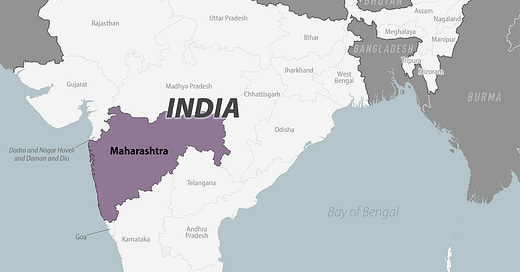This week, the US Centers for Disease Control and Prevention (CDC) issued a warning for travelers to the state of Maharashtra, in the western peninsular region of India, due to a Zika virus outbreak.
A total of 97 positive Zika virus cases have been reported in Maharashtra as of August 9, to include 45 cases in pregnant women.
The city of Pune accounts for the most cases with 75, or 77 percent of all cases.
Health officials in the state said they are closely monitoring pregnant women with positive Zika virus cases.
Health officials in the US recommend travelers to Maharashtra should take steps to prevent mosquito bites and sexual transmission of Zika virus during and after travel.
If you are pregnant or planning pregnancy, talk to your doctor about your risk of Zika virus infection, the possible health effects of Zika virus infection during pregnancy, and ways to protect yourself.
If you are pregnant, you should avoid travel to Maharashtra. If travel is unavoidable, you should strictly follow Zika prevention recommendations.
If you are planning pregnancy, you should delay pregnancy following travel based on the timeframes to prevent sexual transmission.
Travelers to Maharashtra should seek medical care immediately if they develop fever, rash, headache, joint or muscle pain, or red eyes during or after travel.
The first Zika virus infection case in Maharashtra was reported in July 2021 in a 50-year-old woman residing in Belsar village of Purandar tehsil in Pune district. The state reported 27 cases of Zika virus infection in 2021, followed by three cases in 2022, and 15 cases in 2023.
Subscribe to Outbreak News TV on YouTube
Zika is a disease caused by infection with Zika virus and typically occurs in tropical and subtropical areas in parts of Africa, the Americas, Asia, and the Western Pacific.
Zika virus is most commonly spread to people by the bite of an infected Aedes species mosquito. It can also be spread through sex from a person who is infected with Zika virus to their sexual partner. Zika virus can be passed from a pregnant person to their fetus.
Many people infected with Zika virus will not have symptoms or will only have mild symptoms. The most common symptoms are fever, rash, headache, joint and muscle pain, and red eyes. Infection during pregnancy can cause certain birth defects.
There is currently no vaccine to prevent or medicine to treat Zika.





